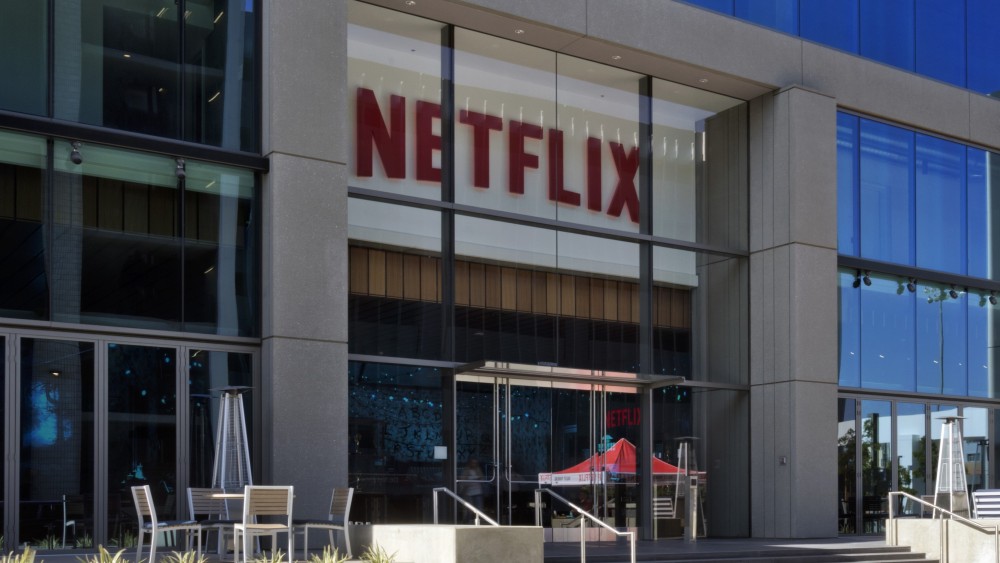
Netflix is poised to score big from two tax incentives that are moving through the state legislatures in California and New Jersey this week.
In California, the legislature is set to approve a five-year extension of the state’s $330 million incentive for film and TV production. For the first time, the tax credit will be refundable — meaning that companies like Netflix, which does not have California tax liability, will be able to benefit.
And in New Jersey, the legislature is moving forward on a significant expansion of a state incentive for film and TV infrastructure. That expansion is designed in part to help Netflix redevelop Fort Monmouth, a former military base on the Jersey Shore, as a production facility.
“It’s going to have a huge local economic impact,” said state Sen. Vin Gopal, a Democrat who sponsored the bill, and who represents the area. “New Jersey wants to be the East Coast hub of arts and cinema.”
The California legislation is the result of more than a year of bargaining between unions, studios, legislators and the governor’s office. It includes refundability — a top priority of the studios — as well as new set safety regulations, which were a top priority for the entertainment unions.
The legislators will also get their key priority: a provision encouraging workforce diversity both on camera and behind the scenes.
Under the legislation, companies will receive only 96% of their tax credit allocation. They will get the extra 4% if they show a good faith effort to hire a workforce that is “broadly reflective” of California’s population in terms of race, ethnicity, gender and disability status.
The California Film Commission will also issue an annual report showing which productions met their goals and which didn’t.
“It’s an opportunity for everyone to commit and have results to those commitments,” said Assemblywoman Wendy Carrillo, D-Los Angeles, who has led the charge on entertainment industry diversity. “The Legislature will be looking at what that annual report looks like.”
A diversity component was already part of the state’s $150 million soundstage incentive. It will apply to the main $330 million credit beginning in 2025. The law also increases the funding for the Career Pathways Training program, which is intended to help train a diverse workforce.
The set safety provision comes in response to the “Rust” shooting in New Mexico in 2021. The bill requires armorers and property masters to complete firearms training. It also sets up a pilot program whereby projects subsidized by the state will have to hire a safety adviser who will have the authority to shut down sets in case of hazardous conditions.
That provision is a key priority for the Directors Guild of America, which represents first assistant directors, who are in charge of safety on sets. Under the pilot program, the safety adviser will take on some of that responsibility. Under its new contract, which was ratified last week, the DGA also got the studios to expand the pilot program to at least one production in both New York and Georgia.
The bill also codifies some of the industry standards for the handling of firearms, which had been voluntary. It specifies that safety meetings shall be held whenever firearms are used, and that only the armorer or the property master can hand a weapon to the actor. The bill does not prohibit the use of blank rounds, which was an early proposal, but which met with opposition from the armorer community.
The refundability provision will allow companies that do not have tax liability in California — or not enough to take full advantage of the tax credit — to get cash back from the state. Companies will be able to claim 90% of the face value of the credit, with the payout stretched over five years.
Netflix in particular has amassed hundreds of millions of dollars in state tax credits, most of which it cannot claim. Warner Bros., Paramount and Sony are also expected to benefit from the refundable credit. Disney and NBCUniversal have substantial tax liability in California, and have not been involved in lobbying for refundability.
The refundability provision kicks in in 2025. The state legislative analyst has estimated that the provision will cost the state about $200 million over several years.
The bill also allows companies to use film tax credits issued in 2020-25 to lower their taxes below the state’s minimum corporate tax threshold — though those credits are not refundable.
The New Jersey tax credit legislation, which is set for a vote on Friday, will increase incentives for studios that commit to make facilities investments, as well as for production companies that lease space at New Jersey studios. The film-lease program will go from $100 million per year to $250 million, while the cap on the studio partner program will increase from $350 million to $400 million.
Netflix is in the process of buying 300 acres of land at Fort Monmouth to develop 12 soundstages. The company is in the midst of a lengthy due diligence phase after winning the bid for the land, which was an Army base until its closure in 2005. Lionsgate is also set to be the anchor tenant of a new production facility under development in Newark.
New Jersey Gov. Phil Murphy, a Democrat who was elected in 2017, has been a major supporter of film tax credits. His Republican predecessor, Chris Christie, had suspended the program.
Peter Chen, an analyst at New Jersey Policy Perspective, criticized the expansion of the credits, saying the bill would reduce accountability measures.
“Every study shows that this is a negative return on investment,” Chen said. “The economic gains generated by these programs are ephemeral.”
New York increased its film tax incentive program from $420 million a year to $700 million this spring, citing increasing competition from New Jersey.
“We end up in a race to the bottom,” Chen said. “When everyone starts jacking up their tax credits, you’ve got to go with them.”













